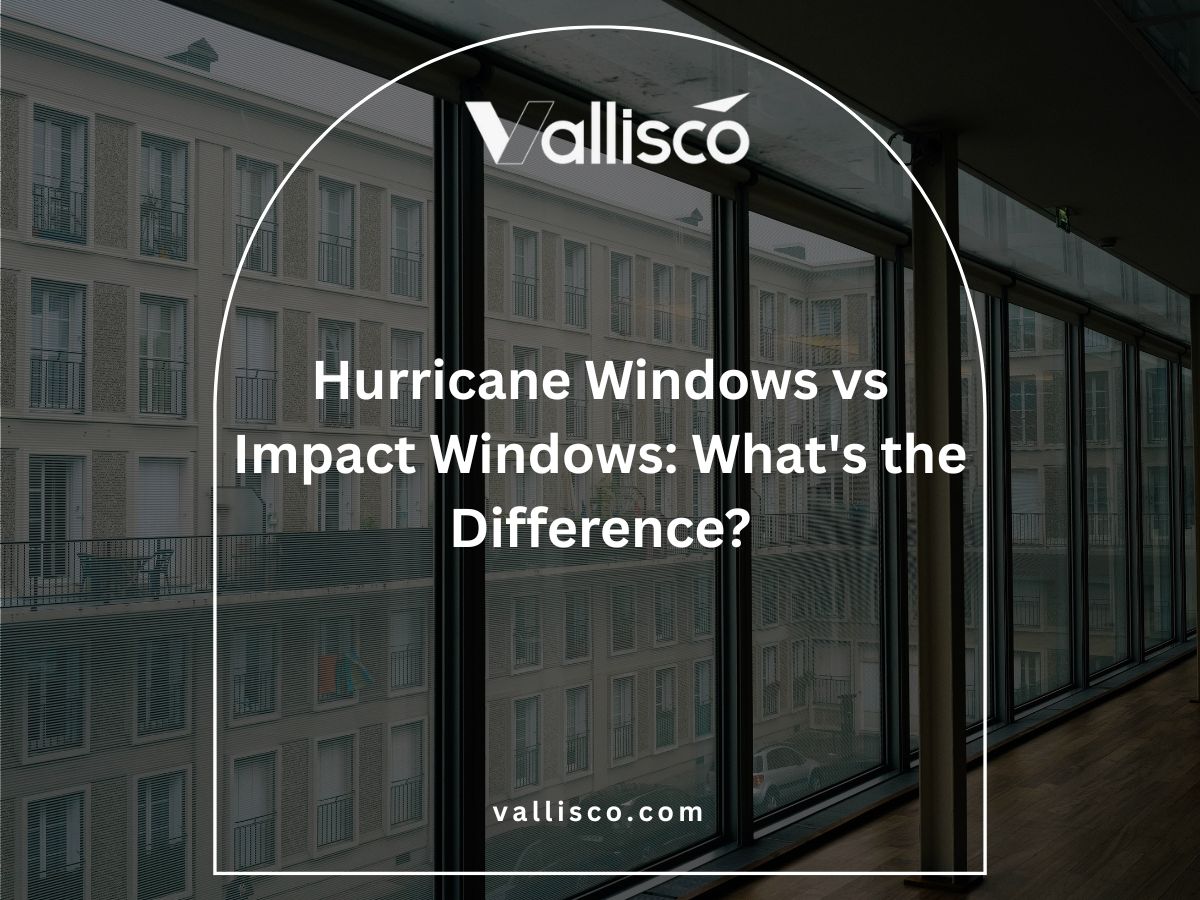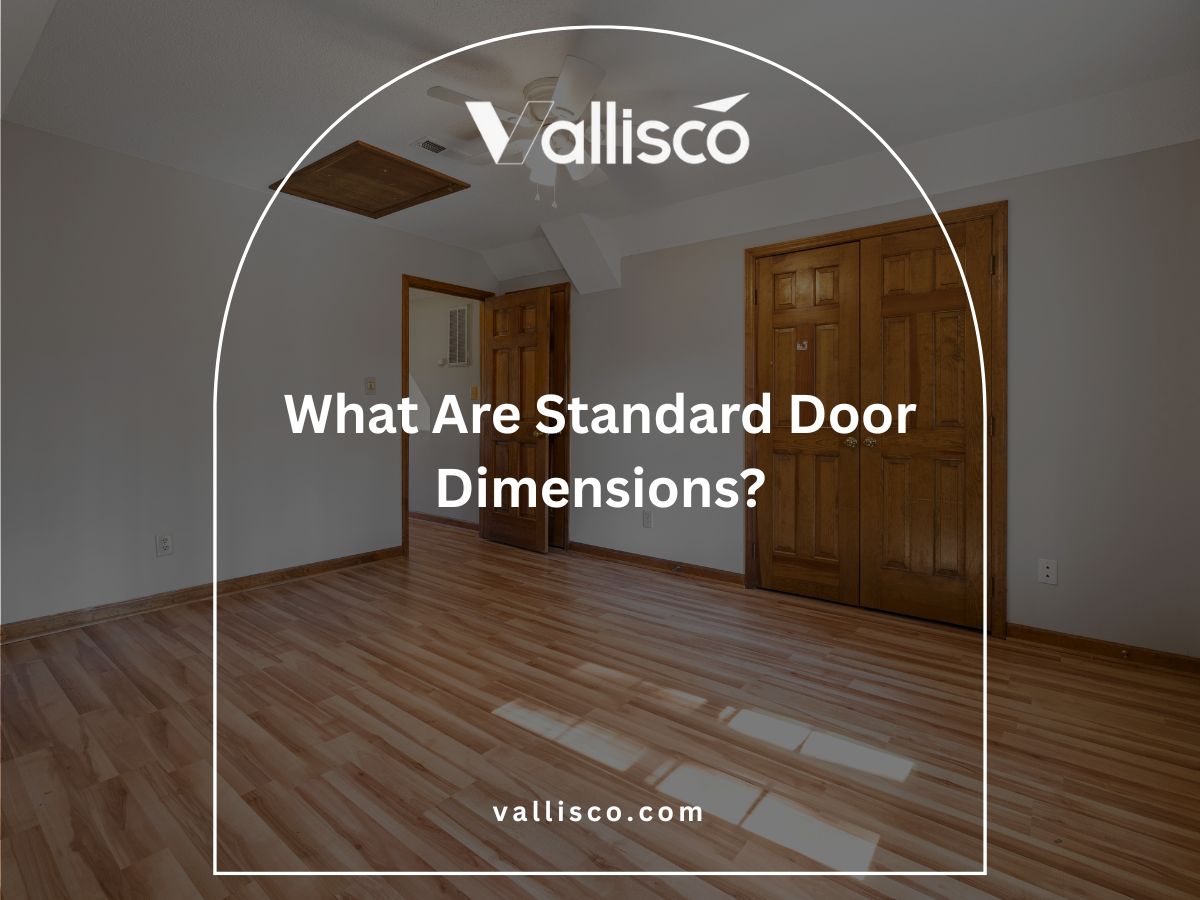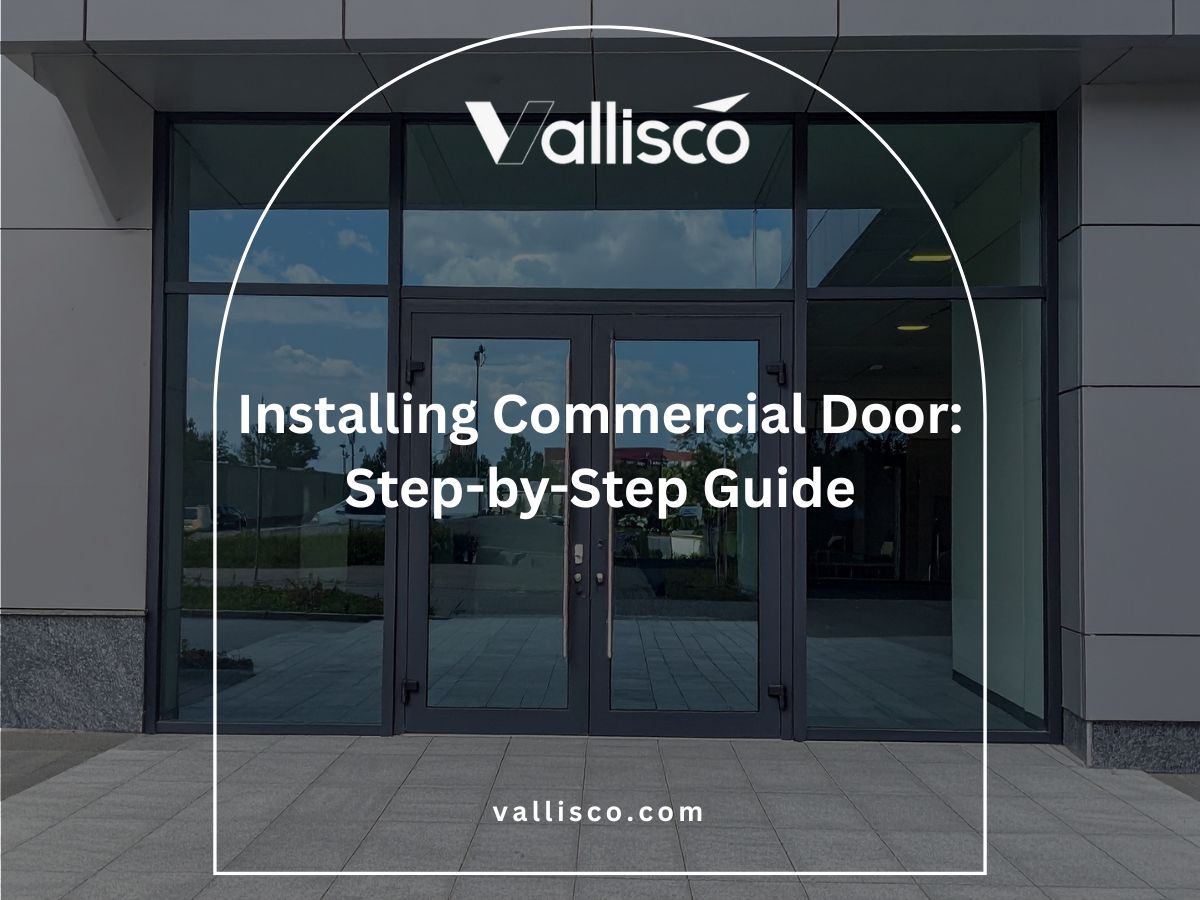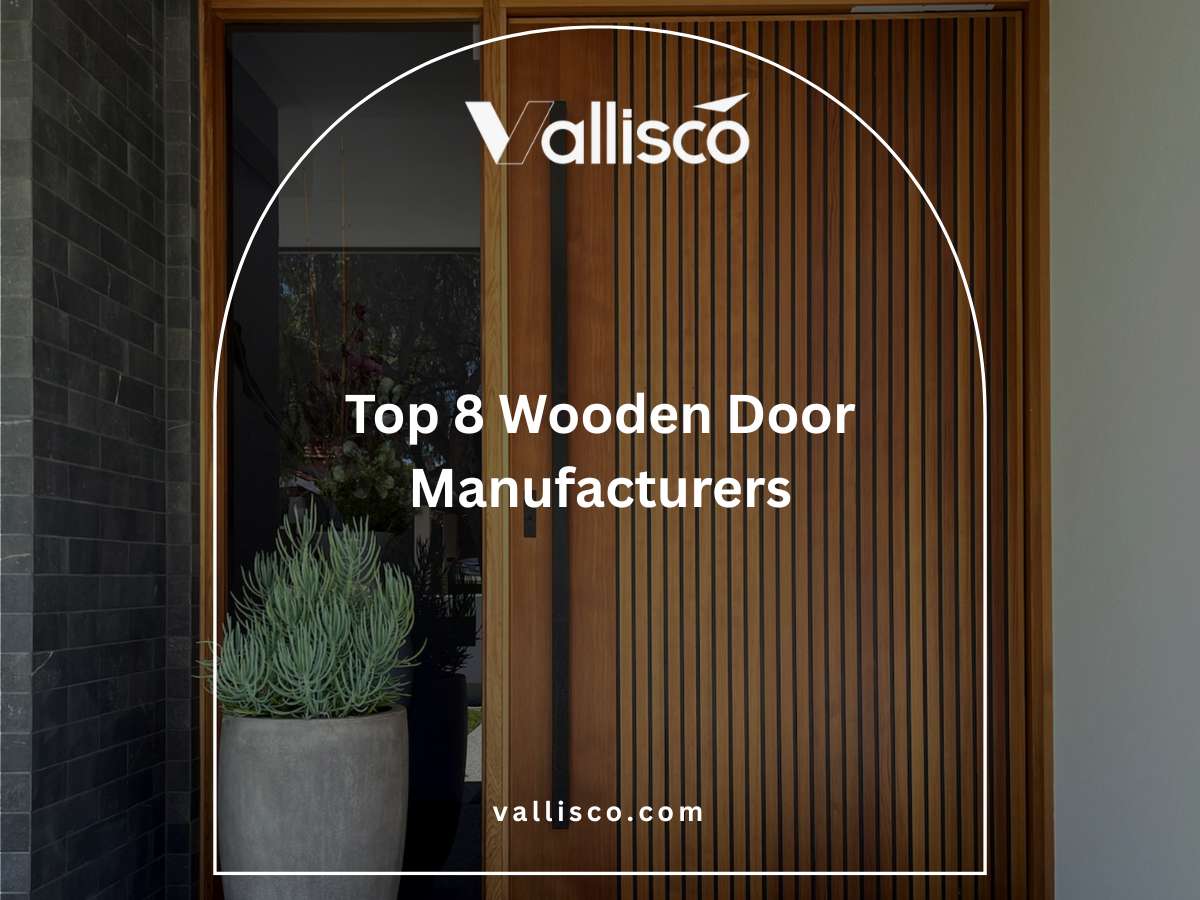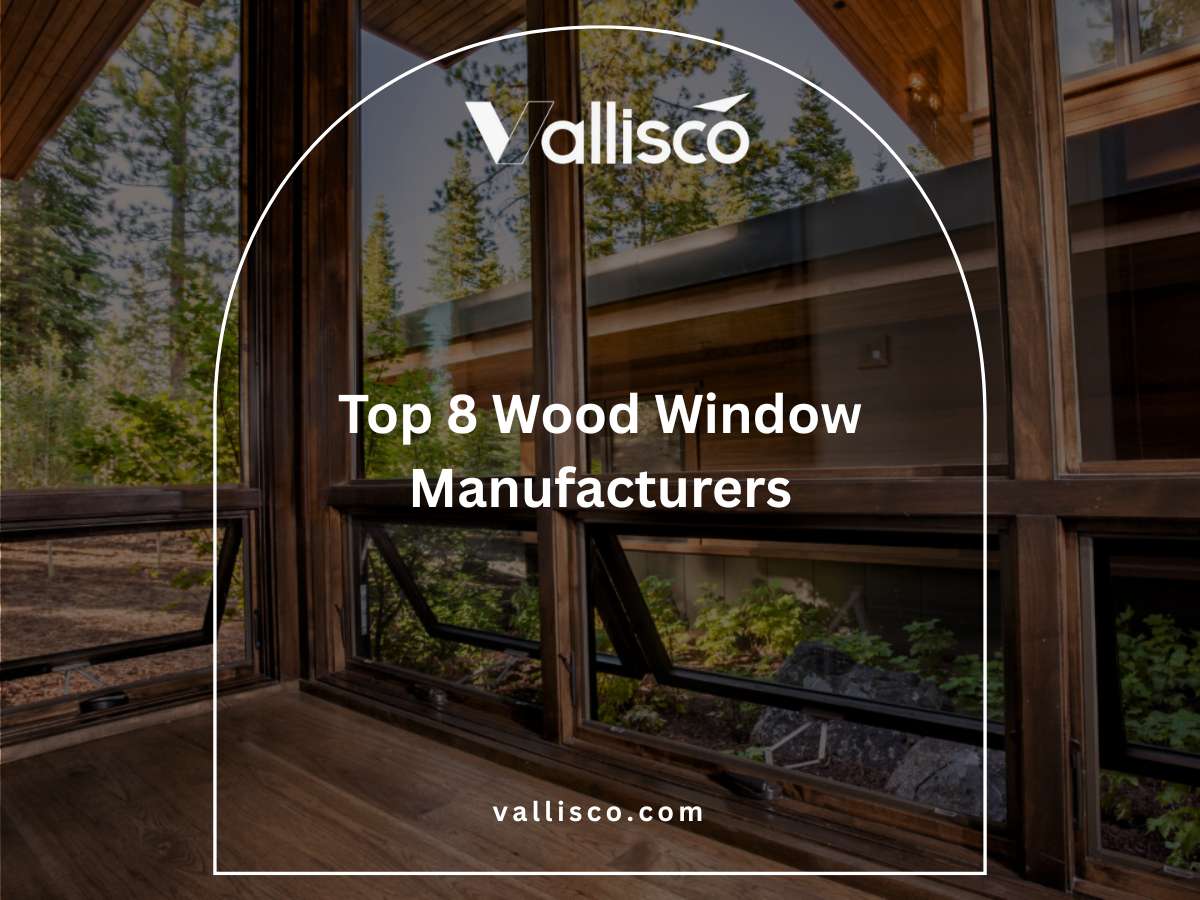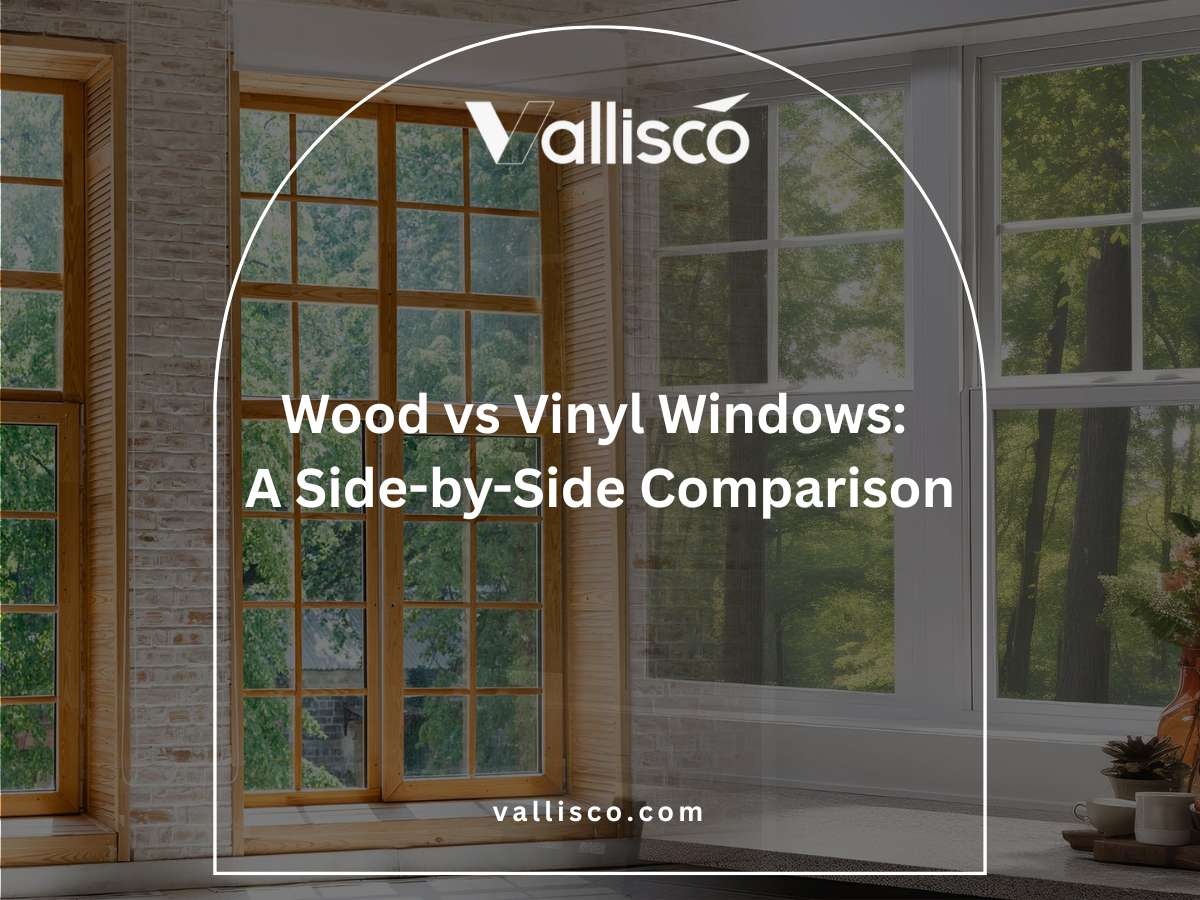A villa project manager once told me they had to replace all the guest room doors only three years after installation. The doors weren’t damaged—they just weren’t strong enough for daily use.
That story is common, and it often starts with confusion about commercial door vs residential door.
I’ve helped businesses across different regions make these decisions. My role is to guide them through real-world factors like durability, safety, and compliance, not just looks.
This review will break down the key differences step by step. You’ll see how each type of door performs and which one makes sense for your property.
If you’re planning a project, the right choice here can save time, money, and future stress.
Let’s get into it!
Quick Comparison Chart
Before we go deeper, here’s a side-by-side comparison of the main categories. This gives you a quick picture of how the two door types differ, and what they are best for.
| Category | Residential Door | Commercial Door |
| Material & Construction | Wood, fiberglass, decorative glass. Built for comfort and appearance. | Steel, aluminum, hollow metal, glass + frame. Built for strength and compliance. |
| Durability & Usage | Handles light to moderate daily use. Shorter lifespan in heavy traffic. | Handles constant opening/closing, high impact, weather stress. Long lifespan. |
| Security & Safety | Standard locks, alarm compatibility, not usually fire-rated. | Fire-rated, panic bars, reinforced locks, electronic systems. |
| Design & Aesthetic Considerations | Wide range of designs, colors, finishes, decorative panels. | More functional, but modern options include glass and aluminum frames. |
| Cost & Value | Lower upfront cost, but higher replacement frequency under stress. | Higher upfront cost, but lower lifetime cost due to durability. |
| Regulatory & Compliance | Fewer rules, easier approval. | Must meet fire, accessibility, and safety codes. |
| Best For | Villas, homes, guest rooms, small-scale residential projects | Hotels, inns, B&Bs, lobbies, public areas, greenhouses, long-term use |
This overview helps you see the main differences at a glance. Each factor matters differently depending on your property type. Read more below to see the details explained step by step.
1. What is a Residential Door?
A residential door is built with that in mind. It’s made to look good, fit the character of the house, and provide everyday comfort. You’ll often see them in wood, fiberglass, or decorative glass. They work well in spaces with lighter use, like front entries, patios, or room-to-room connections.
For you and your projects, a residential door means more focus on design and insulation than heavy-duty performance. These doors are not built for constant traffic or strict safety rules. They shine in places where appearance and home comfort matter most, like villas or private houses.
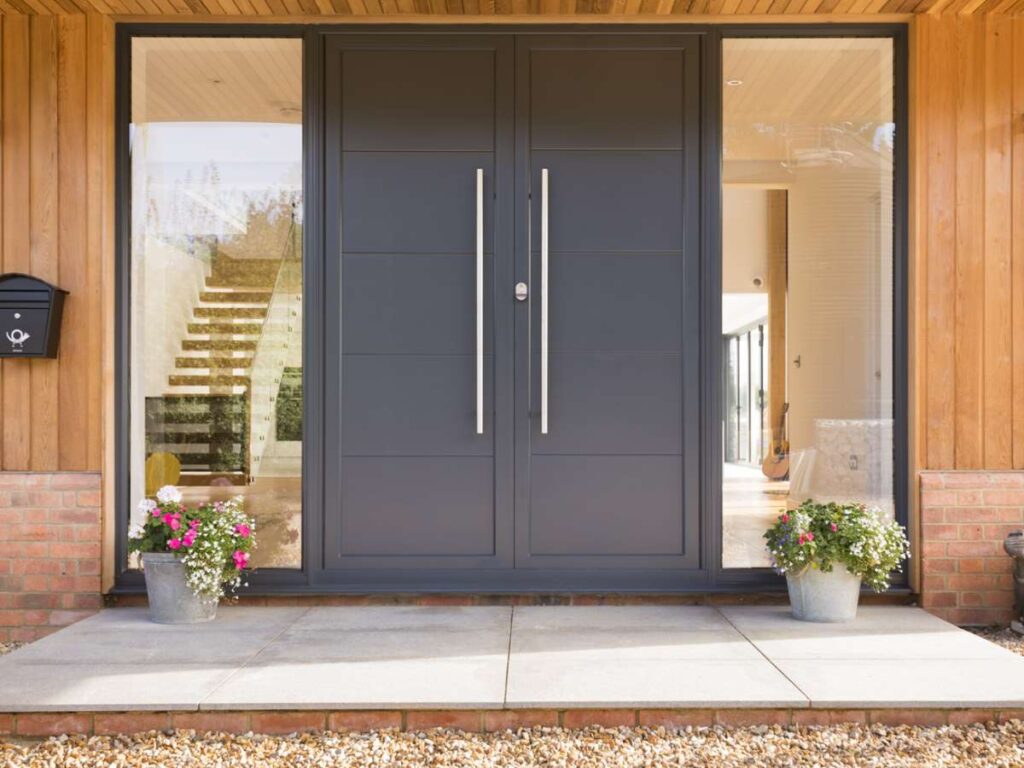
2. What is a Commercial Door?
A commercial door is built to handle more than looks. It’s designed for places where people are coming and going all day, like hotels, inns, B&Bs, and public spaces. The focus is on strength, safety, and compliance with building codes.
These doors are often made of steel, aluminum, or hollow metal. They can also include large glass panels with strong frames, which you’ll see in lobbies or storefronts. Unlike residential doors, they are tested for fire safety, impact resistance, and heavy daily use.
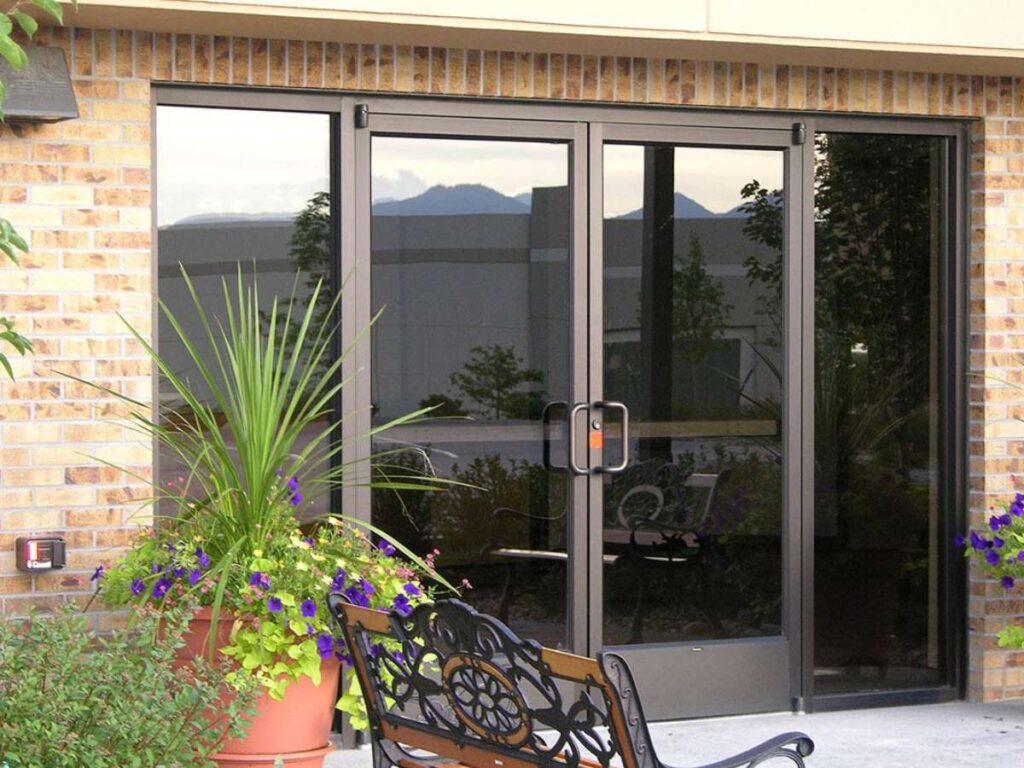
3. Material & Construction Differences
When I compare residential and commercial doors with clients, I always start with what they’re made of. The material and the way each door is built make the biggest difference in how it performs. If you understand this part, you’ll be able to decide what works best for your property.
Residential Door Materials and Build
- Wood: A common choice for villas and houses because of its natural look. It adds warmth and character, but it can warp or swell in humid or rainy conditions.
- Fiberglass: Known for being light and low maintenance. It offers good insulation, but it won’t handle heavy impact or constant traffic as well as steel.
- Decorative Glass: Often used in entry doors or patio doors for style. While it looks inviting, it’s not the best option where safety or durability is the main concern.
- Composite Options: Sometimes a mix of materials like wood veneer and fiberboard. These can be affordable, but long-term performance depends on upkeep.
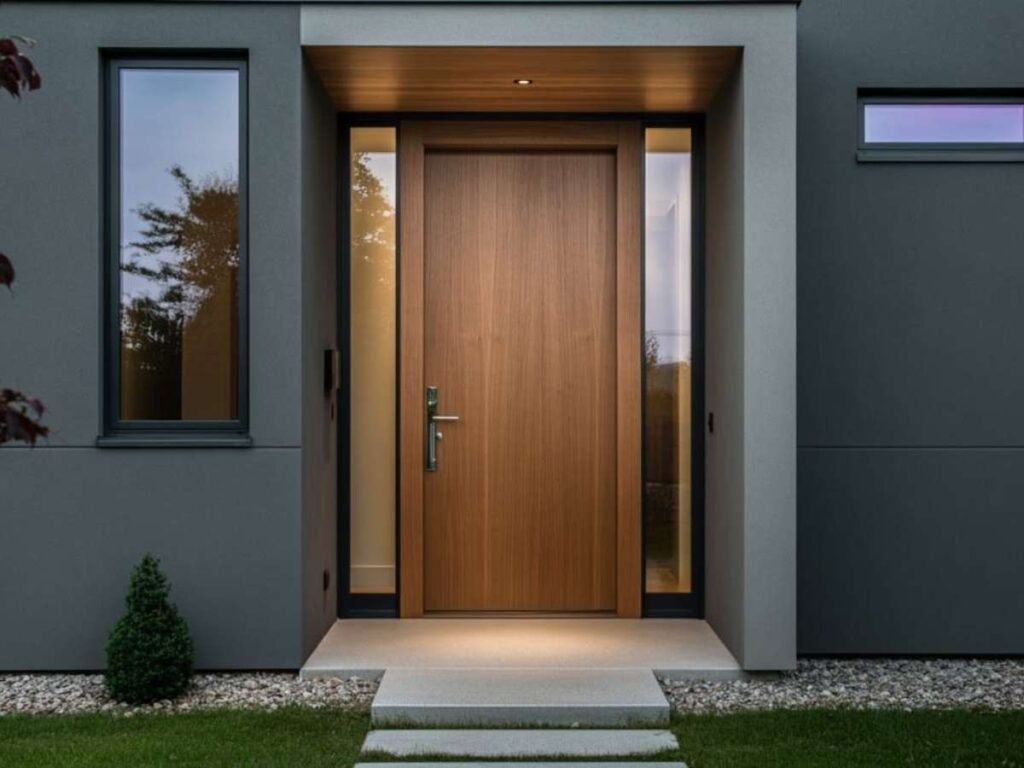
Commercial Door Materials and Build
- Steel: Strong, long-lasting, and excellent for fire safety. It’s common in hotels, inns, and public areas where security matters.
- Aluminum with Glass Panels: Frequently used in lobbies and storefronts for a professional look. It combines transparency with strength, and the frame prevents warping.
- Hollow Metal: Cost-effective and tough, especially for high-traffic zones. These doors are practical for back areas or utility spaces.
- Specialty Doors: Includes fire-rated or reinforced doors for specific compliance needs. They’re built with codes in mind, not just appearance.
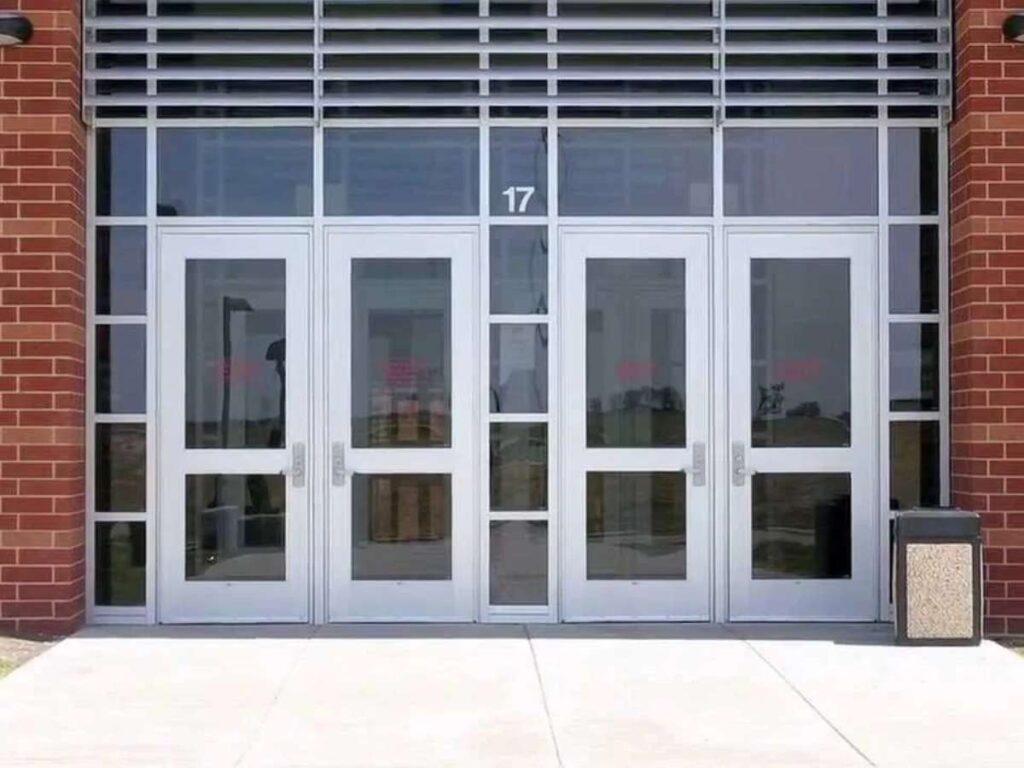
Final Thoughts
Residential doors are built to look good and provide comfort, while commercial doors are built to last and meet strict standards. The right choice depends on how much daily use your doors will get and whether codes apply to your property. If you run a hotel, inn, or B&B, commercial-grade materials often pay off in the long run.
4. Durability & Usage
I’ve seen property owners underestimate how much strain a door goes through every day. The way a door holds up under constant use can make or break its value. If you’re planning a project, thinking about durability now will save you repairs later.
Everyday Use
Residential Door
- Light Traffic: Works well in homes or villas where people open and close the door only a few times a day. It isn’t made for the steady stream of movement you see in a business setting.
- Shorter Lifespan Under Stress: Handles daily family use, but it weakens faster in hotels or public spaces. Replacing them too often adds up in cost.
- Weather Sensitivity: Wood and fiberglass can warp or crack with heat, moisture, or heavy rain. This can affect how the door fits and closes.
Commercial Door
- High Traffic Ready: Built for hundreds of openings each day, perfect for hotels, lobbies, or B&B entrances. You won’t see it wear down quickly even in busy environments.
- Long Lifespan: Materials like steel or aluminum stay strong for years with minimal issues. That makes them a smarter choice for high-use spaces.
- Weather Resistant: Handles temperature shifts, rain, and sun better than wood. They’re built with coatings and seals that keep them stable.
Safety Under Pressure
Residential Door
- Basic Protection: Vallisco’s doors work fine for a private house where safety risks are lower. These doors are not usually tested for fire or heavy impact.
- Limited Strength: Decorative glass or lighter wood can break more easily. In a commercial setting, this can pose risks to guests and staff.
- Maintenance Dependent: Needs regular painting, sealing, or checks to stay in good shape. Without upkeep, it wears down faster.
Commercial Door
- Impact Resistant: Tested to handle force and daily use without breaking. This is important for areas with high guest traffic.
- Fire-Rated Options: Many come with fire safety ratings required for hotels and inns. This gives you added protection and meets local codes.
- Low Maintenance: With the right finish, these doors don’t need as much attention. That means fewer disruptions to your business.
Long-Term Performance
Residential Door
- Costly Over Time: Lower upfront price, but replacement costs stack up if you use them in the wrong setting. This can hurt your budget in the long term.
- Better for Light Duty: Performs well where traffic is limited and appearance is the focus. Villas and private homes fit this category.
- Not Business Grade: They don’t meet the daily wear needs of hotels, inns, or greenhouses. Using them in these places often leads to early failures.
Commercial Door
- Investment Value: Higher starting cost but pays off by lasting longer. This makes them more cost-effective for businesses.
- Built For Business: Handles traffic, weather, and safety standards with ease. That reliability matters for guest satisfaction and smooth operations.
- Consistent Quality: Tested and made for the same results every time. This consistency reduces risk for your projects.
Final Thoughts
Residential doors serve well in private homes and villas, but they wear down fast under business-level use. Vallisco’s commercial doors are built to take daily traffic, meet safety rules, and last longer with less maintenance. If you’re managing hotels, inns, or greenhouses, investing in commercial durability saves time and money in the long run.
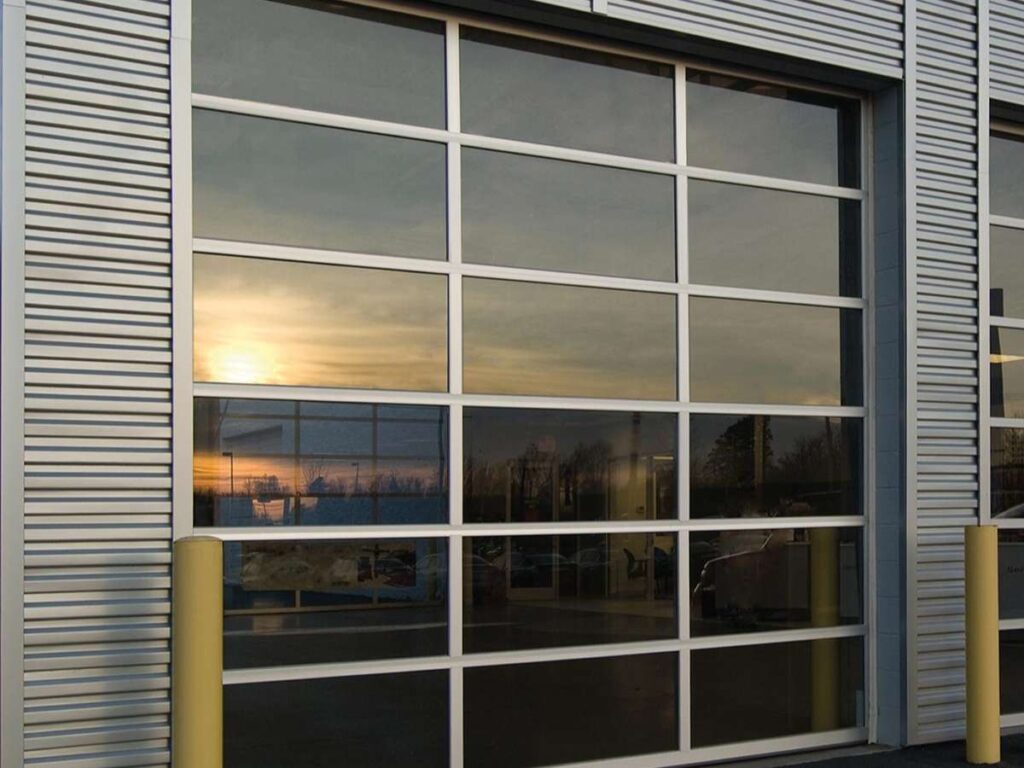
5. Security & Safety Standards
Security and safety are not optional in business properties. Whether you’re running a villa, hotel, or greenhouse, doors play a direct role in protecting people and property. The type of door you choose affects how well you meet those needs.
Locking Systems
Residential Door
- Standard Locks: Usually comes with basic deadbolts or knob locks. These are fine for houses but not strong enough for high-risk areas.
- Smart Home Options: Some residential doors support smart locks. These work well for homes but don’t scale to business-level access control.
- Limited Upgrade Paths: Upgrading to stronger locks is possible but may not match the door’s overall build strength.
Commercial Door
- Advanced Access Systems: Works with electronic keycards, keypad entries, and smart business systems. This helps hotels and inns manage guest or staff access.
- Stronger Locking Hardware: Handles reinforced locks and deadbolts without weakening the frame. These doors are designed for higher security demands.
- Better Integration: Easy to pair with building security systems, making it part of a bigger safety plan.
Safety Ratings and Compliance
Residential Door
- Rarely Fire-Rated: Most doors in houses don’t go through fire safety testing. This is fine for private use but won’t pass inspections in commercial spaces.
- No Panic Hardware: You won’t find panic bars or similar features. This makes them unsafe in emergency exits.
- Not Built For Codes: Residential doors don’t usually meet business-level codes for safety and access.
Commercial Door
- Fire-Rated Options: Many commercial doors meet fire safety standards. Hotels and inns often need this to stay compliant.
- Panic Hardware: Built to allow fast exits during emergencies. This is required for many commercial spaces.
- Code Compliance: Meets regulations for safety, fire, and accessibility. This reduces risk of fines and improves guest safety.
Strength and Protection
Residential Door
- Good For Homes: Offers decent protection for family use. But it’s not designed to withstand heavy force.
- Glass Panels: Decorative glass is easy to break, which can be a weak spot. In commercial use, this increases security risks.
- Weather Impact: Strong winds or heavy rain can weaken residential materials over time.
Commercial Door
- Impact Resistance: Tested for strength against force and repeated use. This makes them safer for high-traffic areas.
- Reinforced Frames: Built with stronger frames to hold locks and hinges under pressure. This keeps the door secure even with frequent use.
- Weather Resistance: Handles tough conditions without losing safety features. A good fit for greenhouses or properties exposed to moisture.
Final Thoughts
Residential doors give basic protection for homes, but they fall short in safety features needed for business properties. Commercial doors are built with stronger locks, safety ratings, and compliance in mind. If your project involves hotels, inns, or B&Bs, commercial doors will keep both your property and your guests safer.
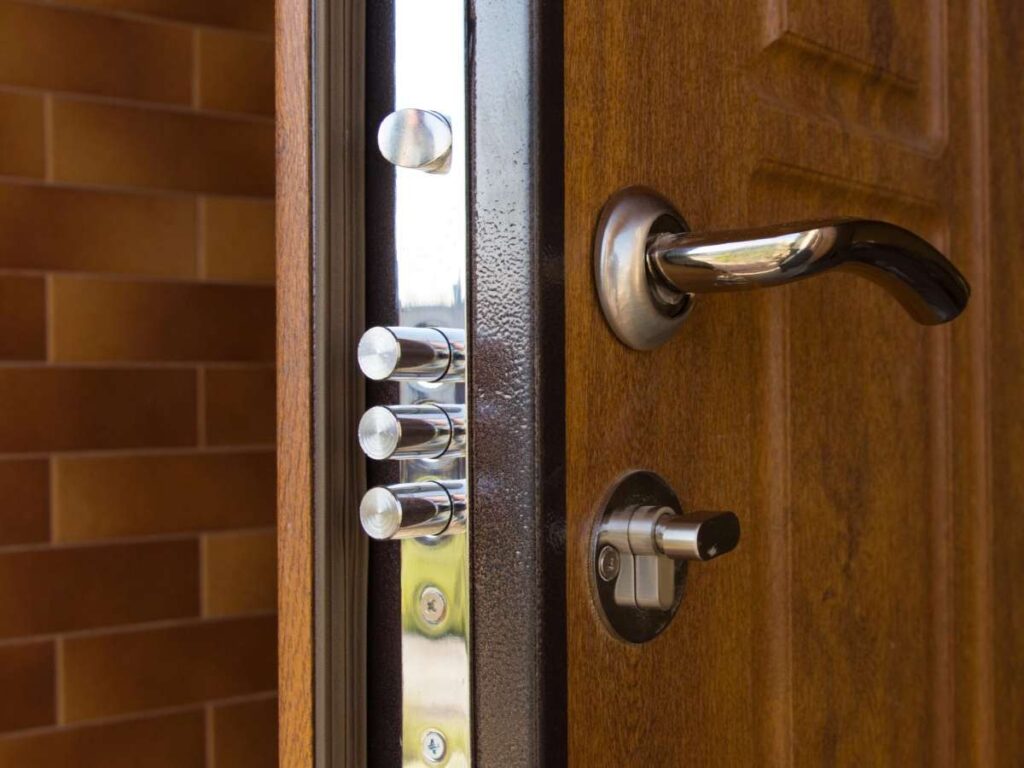
6. Design & Aesthetic Considerations
I’ve noticed that many of you care about how doors look just as much as how they perform. That makes sense—guests form an impression of your property the moment they walk through the entrance. The right choice depends on whether appearance or function is your top priority.
Residential Door Design
- Wide Style Options: Comes in many designs, from classic wood panels to modern glass inserts. This makes it easy to match the overall appearance of a villa or private home.
- Custom Finishes: Paint, stains, and decorative trims give you plenty of room for creativity. These touches work well when appearance is more important than performance.
- Decorative Glass Panels: Add natural light and visual appeal to entryways. While attractive, it lowers the door’s security and durability.
- Architectural Match: Works well with different building styles—traditional, modern, or rustic. It blends seamlessly into residential settings.
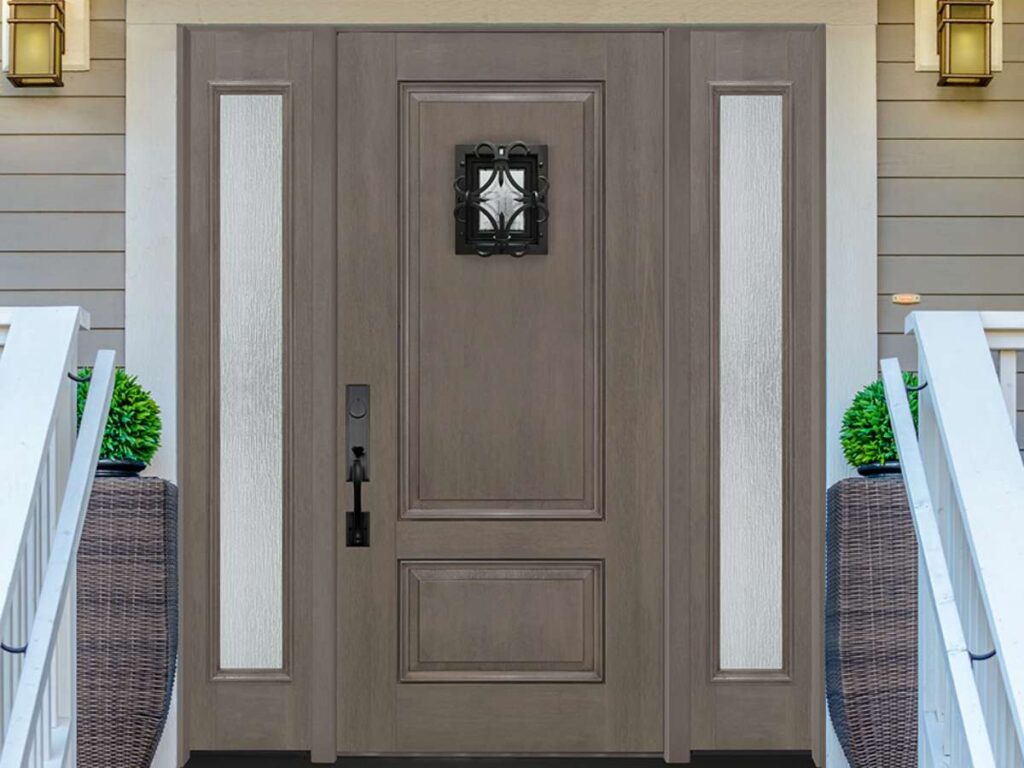
Commercial Door Design
- Professional Look: Usually simpler in design but clean and businesslike. This works well for hotels, inns, or B&Bs where first impressions matter.
- Glass and Aluminum Options: Popular in lobbies and storefronts, combining visibility with strength. These doors balance aesthetics with functionality.
- Branding Opportunities: Some commercial glass doors can feature etched logos or signage. This adds a professional touch while still being practical.
- Consistency Across Property: Offers uniform designs for multiple doors in one project. This helps create a cohesive look across entrances, exits, and hallways.
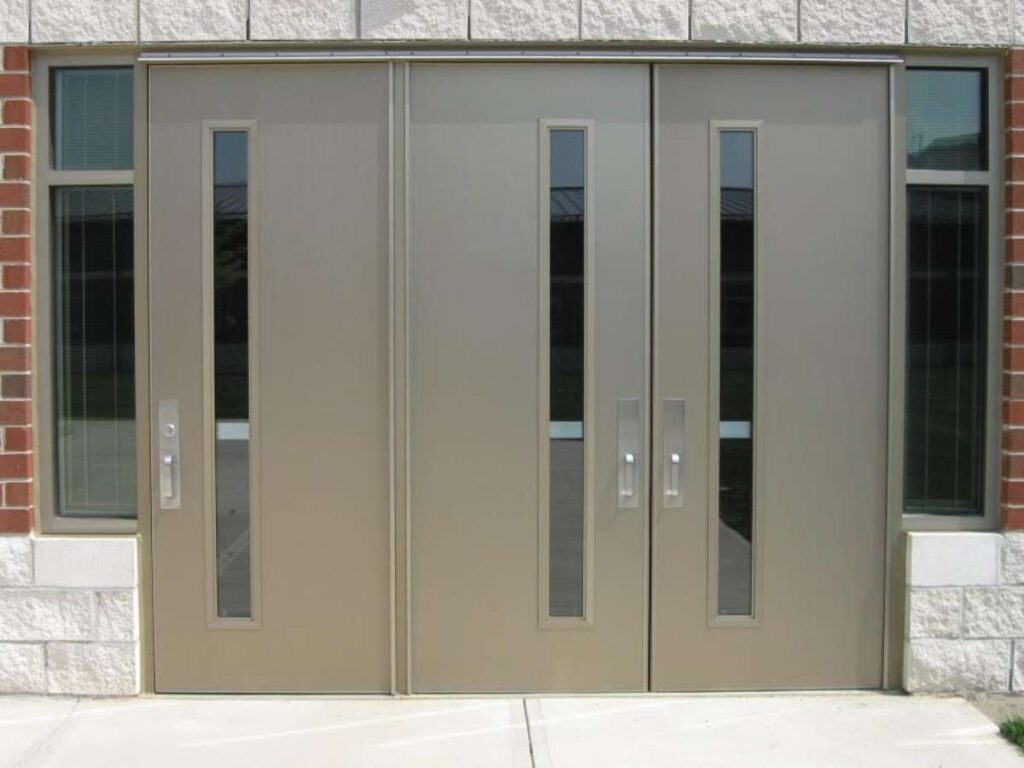
Final Thoughts
Residential doors give you flexibility in design and personal style, which makes sense for villas and private houses. Commercial doors, on the other hand, focus on a clean, professional look with options that fit business settings. If you’re managing hotels, inns, or guesthouses, commercial designs can still look appealing while meeting your operational needs.
7. Cost & Value Comparison
Price is often the first thing clients ask me about. But in my experience, the real question is how long a door will serve you before it needs repairs or replacement. Cost and value go hand in hand, and the difference between residential and commercial doors shows up clearly here.
Upfront Investment
Residential Door
- Lower Initial Price: Usually cheaper to buy and install, which works well for smaller projects. The savings are attractive if you’re handling a private villa or light-use property.
- Simple Installation: These doors are quicker and less costly to put in place. But the tradeoff is that they aren’t reinforced for high traffic use.
- Affordable Materials: Wood, fiberglass, or composites cost less than heavy-duty metals. But these materials wear down faster in business environments.
Commercial Door
- Higher Initial Price: Costs more at the start because of stronger materials and added safety features. This can feel like a big jump compared to residential options.
- Specialized Installation: May need professional fitting with reinforced frames. While this adds cost, it also adds long-term reliability.
- Premium Materials: Steel, aluminum, and fire-rated cores make them more expensive upfront. These materials are built to business standards.
Maintenance and Repairs
Residential Door
- More Frequent Upkeep: Needs painting, sealing, or repairs to stay in shape. If used in high-traffic areas, maintenance costs add up quickly.
- Shorter Lifespan: Even with care, it won’t last as long under business-level use. That means replacing them sooner than expected.
- Unexpected Costs: Damage to weather or guest traffic can lead to surprise expenses. This can disrupt your budget over time.
Commercial Door
- Lower Ongoing Maintenance: Built with finishes and frames that resist wear and tear. This cuts down on repair schedules and saves time.
- Longer Service Life: Designed to last many years, even with daily heavy use. That means fewer replacements and less downtime.
- Predictable Costs: The durability makes expenses easier to plan. Businesses benefit from consistent performance without hidden surprises.
Long-Term Value
Residential Door
- Good For Short-Term Projects: Works well if you don’t need it to last decades. But not the best value if used in hotels or guesthouses.
- Lower Return On Investment: The frequent repairs and replacements lower its overall value. What looks cheaper at first becomes expensive later.
- Best For Light-Use Homes: Suits villas or houses where looks matter more than heavy duty. Beyond that, the value drops off.
Commercial Door
- Better Lifetime ROI: The higher upfront cost pays back through years of reliable service. Businesses see better returns in the long run.
- Stronger Resale And Compliance Value: Properties with commercial-grade doors often pass inspections smoothly and hold better long-term worth.
- Smart Choice For Businesses: For hotels, inns, and B&Bs, it makes financial sense. The doors work harder and longer, reducing replacement cycles.
Final Thoughts
Residential doors look cheaper at first, but the value fades fast in business use. Commercial doors cost more upfront, but their durability, compliance, and lower upkeep make them the stronger financial choice. If you’re managing a property with steady guest traffic, the long-term numbers favor commercial every time.
8. Regulatory & Compliance Factors
Rules and standards are different for residential and commercial projects. I’ve seen clients run into delays or added costs when they didn’t account for these differences early. Knowing what applies to your property can help you plan better and avoid problems later.
Residential Door Compliance
- Fewer Requirements: In most regions, doors for houses and villas don’t have strict codes. This gives you more freedom to focus on style and comfort.
- Local Building Codes: You may still need to meet community or neighborhood rules. These are usually about appearance or basic safety, not advanced standards.
- Fire Safety: Regular residential doors are rarely tested for fire ratings. This is fine for private use but not acceptable in a hotel or public building.
- Accessibility: Residential projects don’t often require ADA or similar standards. That means door sizes and features can be more flexible.
Commercial Door Compliance
- Fire Ratings: Many commercial doors must meet fire safety tests. Hotels, inns, and B&Bs often need these to pass inspection.
- Emergency Exits: Commercial codes require panic bars or quick-release hardware. This makes sure guests and staff can exit safely in an emergency.
- Accessibility Standards: Commercial properties are expected to meet ADA or similar accessibility rules. Door width, handle height, and ease of opening are all regulated.
- Security Codes: In some areas, doors must meet certain standards for locks and impact resistance. This adds another layer of compliance.
- Inspection Ready: Doors in hotels or public buildings are checked by inspectors. Passing in the first round avoids fines and project delays.
Final Thoughts
Residential doors don’t face the same level of regulation, which is fine for villas and private houses. But once you manage hotels, inns, or B&Bs, you’re dealing with stricter codes for fire, safety, and accessibility. Planning with commercial-grade doors from the start will save you costly fixes and failed inspections later.
9. Factors to Consider When Choosing Between Commercial and Residential Doors
By this point, you’ve seen how different these doors are in design, durability, cost, and compliance. But the real decision comes down to matching the right door to your specific property and use. I’ve worked with many owners and project teams, and the same key factors come up again and again.
Property Type and Function
The type of property you manage is the first thing to think about. If you’re running a villa or private house, a residential door often fits the bill because it balances cost with appearance. But if you’re managing a hotel, inn, or B&B, commercial doors are usually the safer choice since they’re built to handle traffic and safety codes.
For greenhouses or industrial-style projects, residential doors rarely hold up against moisture and temperature swings. Commercial aluminum or fiberglass doors make more sense here. Think about how your space is used every day, and that will guide you which type you need.
Traffic and Daily Use
I often ask clients one simple question: how many times a day will this door open and close? Residential doors are fine for normal family use in a villa or house, but they wear down fast under constant foot traffic.
Commercial doors are built to handle hundreds of cycles per day without losing shape or function. This is why they’re standard in hotels and guesthouses. If your property sees heavy use, traffic alone may make your choice clear.
Safety and Compliance Needs
For private homes, safety usually comes down to solid locks and good maintenance. That’s enough for a villa or residential project. But for commercial buildings, safety is tied directly to compliance. You’ll need fire-rated doors, panic hardware, and accessibility features.
If you choose the wrong type of door in a hotel or B&B, it could mean failed inspections or even fines. I’ve seen projects delayed because compliance wasn’t considered from the start. Think about both safety and code requirements early, because fixing mistakes later costs more.
Budget and Long-Term Value
Budget always matters, but the way you look at it changes between residential and commercial projects. Residential doors are cheaper up front, and that’s fine for smaller projects or properties with light use. But in hotels, inns, or greenhouses, that short-term saving usually disappears once you start replacing doors too often.
Commercial doors cost more at first but bring better value over the long run. They last longer, need less repair, and pass inspections smoothly. If you’re planning for years of operation, the numbers usually favor commercial doors.
Conclusion
That villa project manager I mentioned earlier learned the hard way that the wrong doors can cost more over time. You don’t need to repeat that mistake.
Residential doors fit well in homes and villas, while commercial doors stand up to heavy use and meet safety codes. The difference matters for your property, your budget, and your guests.
If you’re ready to choose the right doors for your next project, contact Vallisco today, we’ll help you find the right fit.
Learn More: Recommended Reads
Want to see more products? We’ve got plenty of options that might just be the perfect fit for you:
Still haven’t found what you’re looking for? Don’t hesitate to contact us. We’re available around the clock to assist you.


